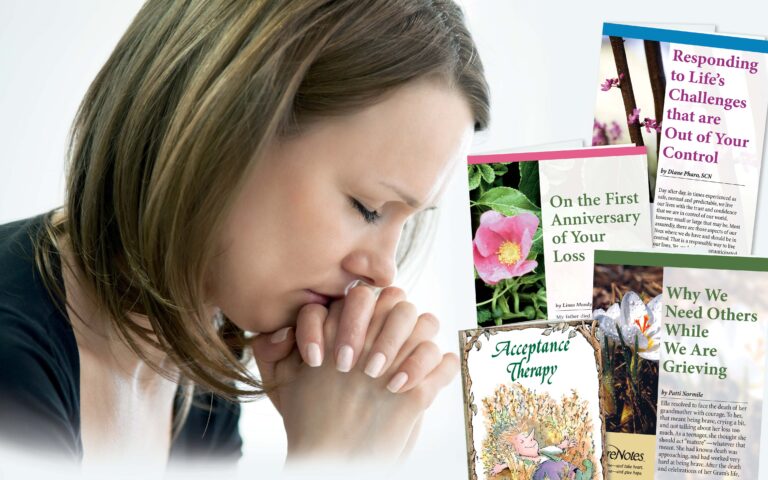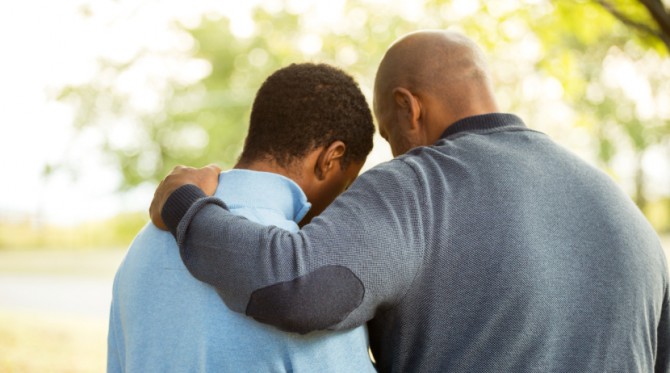A friend or family member is grieving. A co-worker or neighbor has gone through the loss of a loved one. You wonder what you will say at the wake or funeral, at work, when you see them in church or run into them at the supermarket or mall. You want to say the right thing, the comforting thing, not too much or too little.
Responding constructively to another’s grief, however, can be awkward. You might feel uncomfortable with the grieving person’s raw emotions. Maybe you feel helpless about what to say or do. Their loss might trigger your own fears about death or losing a loved one.
Whatever the reasons, it’s OK not to be sure about what to say when faced with another’s grief. You don’t have to have all the answers—but don’t let that stop you. Now more than ever, the person who has experienced a loss needs your support.
What should I say—or not? Grief is unique to each person, and some of the best things you can say to a grieving person recognize that uniqueness by simply being present, accepting and not trying to fix the situation. So it’s good to affirm their feelings by asking them how they are doing, that it’s OK to cry or get mad or show whatever they are feeling—or just by saying, “I’m so sorry.”
Listen to what they want to say. Part of knowing what not to say also involves knowing when you don’t have to say anything. At times, the best thing you can do for someone who is grieving is listen.
Actions can speak for you. Ordinary things can become difficult in the extraordinary situation of grief. You can “say” the right thing to someone who is grieving by doing things for them and offering them practical assistance with life’s everyday tasks.
Grief is a lifelong process. Though people move beyond their initial pain, they will probably never get completely past their feelings of loss in some form or another. Because grief is an ongoing process, your support for a grieving person can be ongoing as well. Visits, cards, calls, emails, text messages, and chats all give you a chance to keep in touch with a person.
Welcome the God-talk. A loss can frequently raise questions about faith. A grieving person might question how a good and loving God could “let this happen,” even whether there is a God at all. They may even be angry with God and wonder whether that’s acceptable. You are a caring presence for them in other areas of grief; faith questions need not be different. Tell them that doubts and anger are not wrong or misplaced; for thousands of years, people of faith have felt anger and doubt, especially in difficult times.
Knowing what to say to a grieving person can be difficult. But you can make the situation more helpful for the griever by, first of all, being present—being there for them. Also, acknowledge their feelings and give them the space to let them out; don’t try to fix their situation or smooth over their emotions.
Offer concrete help where you can. And stay with it and the griever for the long haul. With these few simple things in mind, the words you say to a grieving person will come more easily and also bring that much more comfort to them.
Excerpt from “What to Say to Someone Who is Grieving” by CareNotes






